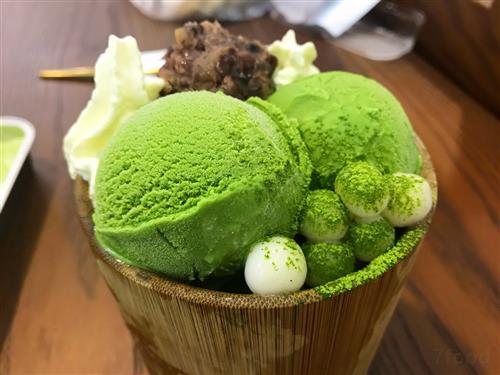Regarding whether pregnant women can drink alcohol, almost every mother in the country recognizes this point: Avoid alcohol during pregnancy and lactation. However, is it scientific and safe for maternity women to use the "monthly dishes" that are served with wine or directly after drinking boiled "moon wine?" If you are in South China, such customs are familiar, such as the Hakka Chinese liquor in Guangdong, the “Monthly Water†in Jiangsu and Zhejiang, and the Month of Cuisine cooked with “Monthly Wine†such as Mother Wine and Eggs and Moon Rice Wine and Fish Soup. ". Next, from a scientific point of view, talk about the "Monthly Wine" customs, and Australia's information on lactating mothers' intake of alcohol. 1. Is the alcohol level of "Monthly Drink" safe? Month wine is rice wine or rice wine, which is a kind of grain wine made from rice. The alcohol content is usually lower than 20%. Typical examples include the Hakka Mother of Guangdong, the "Monthly Water" of Jiangsu and Zhejiang, etc. They are often used to cook all kinds of special dishes of the month. Most of the text on the Internet calls it "the nutritional value is good, it is conducive to the postpartum mother to restore the body and achieve breastfeeding." And regardless of the intake of alcohol will inhibit the mother's secretion of oxytocin, resulting in decreased milk discharge, we first need to understand, "Monthly Drink" such as alcoholic beverages, is safe for lactating mothers. The degree of alcohol used in the cooking of various kinds of monthly dishes is quite different. It is said that the degree of alcohol used for the post-natal delivery of "Monthly Drink" is appropriate at 4 to 6 degrees, but most of the Hakka Mother's wine sold on the Internet is about 10 degrees of alcohol. At the same time, there are many monthly wines belonging to home-made workshops, and the degree of alcohol is not certain. Therefore, the degree of alcoholism of "Monthly Drink" is very uncertain and it is not very safe. Second, mother drink baby drink "alcohol milk" In general, alcohol or alcohol in foods will peak in blood and milk 30 to 90 minutes after ingestion. The milk concentration in lactating mother's milk and blood is the same, and the specific value is related to the degree of alcohol and the total amount of food and drink intake. It is also related to the weight and the intake rate of the consumer. Alcohol in the milk gradually disappears over time. In general, the human body takes 2 to 3 hours to clear a beer with 5 degrees, 150 mL of 11 degrees of red or white wine, and 45 mL of 40 degree spirits. It is worth noting that the rate at which the human body clears milk in the milk is not accelerated by the increase in the number of milk pumps. Moreover, once the baby has ingested alcohol through milk, it takes twice as much time as adults to clear it. If breastfeeding mothers cannot avoid small amounts of alcohol in occasional special circumstances, they should ensure that they do not eat or drink after breastfeeding, or avoid breastfeeding within 3-4 hours after ingestion of alcohol. If breastfeeding mothers drink alcohol for a long period of time, it may cause health hazards to the baby and it is not recommended to continue breastfeeding. Third, lactating mother intake of alcohol, how much harm? Once the milk contains alcohol, regardless of the level of alcohol, it is not safe for the baby. Don’t be fortunate enough to think that a lower degree is okay because only 0-alcohol milk is the best food for your baby. Here we must first talk about the calculation of alcohol standards. In Australia, the total amount of alcohol containing 10 grams of alcohol is a standard amount. Listen to a 3.5-degree beer, 100 mL of 13-degree red wine, and 30 mL of 40-degree spirits, about a standard amount. We can roughly estimate how many milliliters of a standard amount of alcoholic beverages are in life. Breast-feeding mothers who drink alcohol directly or eat foods containing alcohol can cause the following hazards: 1. Causes a decrease in milk, delayed galactorrhea reflex When breastfeeding, the baby's sucking can stimulate the mother to secrete oxytocin, which promotes the concentrated secretion of milk, which is the so-called "milk array." After ingestion of alcohol, alcohol in the mother's body inhibits the secretion of oxytocin, which leads to a decrease in milk discharge and delayed reflection of galactorrhea. 2. Lead to baby sleep disorders Breast-feeding mothers who drink or consume beverages containing the equivalent of 1 to 2 standard amounts of alcohol or breast-feeding food will reduce their baby's milk intake by about 20 to 23%, and may experience frequent sleep disturbances or abnormal excitement. 3. Lead to baby lag Daily intake of a standard amount of alcohol by lactating mothers may result in lag in growth and motor development in young children. 4. Affect the taste of breast milk The alcohol in the milk affects the smell and taste of breast milk. 5. Lead to oversedation of your baby Numerous alcohol intakes by breastfeeding mothers can lead to oversedation of the baby, excess water in the body, and unbalanced hormone levels in the body. 6. Lead to baby thrombocytopenia Breast-feeding mothers eat "tonics" containing alcohol, which can cause severe thrombocytopenia and bleeding tendency in infants and young children. The custom of eating alcoholic beverages after childbirth is common only in China. The study was based on the clinical statistics of Chinese mothers in Singapore. I hope this article has a certain reference value, so that more needy mothers see. Traditional customs, we can not blindly reject. However, when there is a more scientific and reliable basis, we should rationally look again. Electronics Industrial Nitrile Gloves Electronics Industrial Nitrile Gloves,Pure Nitrile Exam Gloves,Waterproof Gloves For Work,Astm D6978 Examination Gloves Puyang Linshi Medical Supplies Co., Ltd. , https://www.linshihealths.com